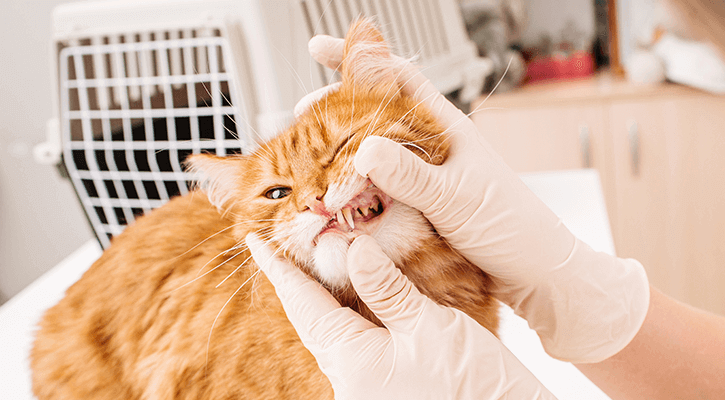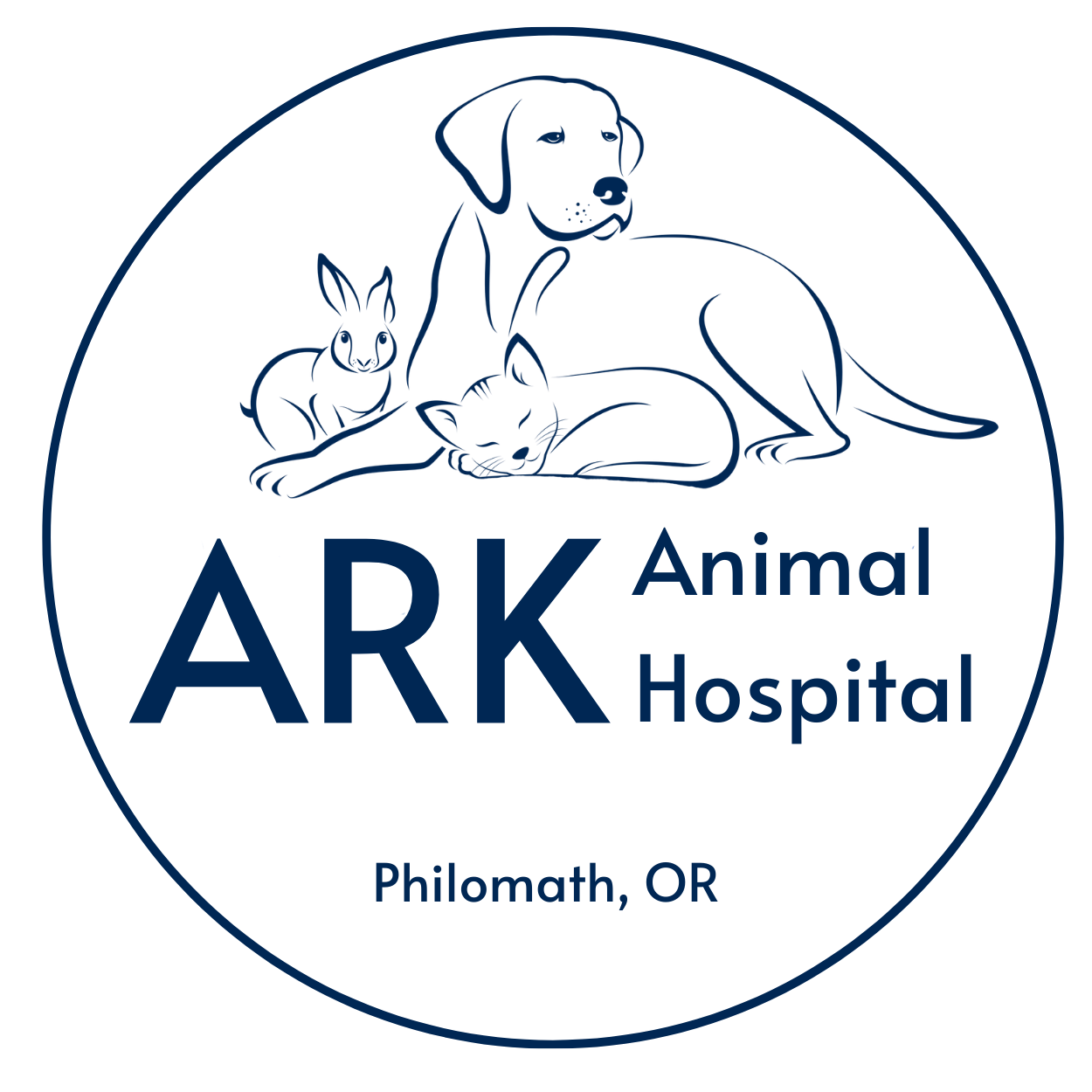Dental Care

No matter your pet’s breed or age, dental health is one of the most important parts of their overall health. Early detection and prevention are vital to keeping their mouth — and body — healthy for many years to come.
By regularly brushing your pet’s teeth at home and scheduling veterinarian dental cleanings at least once per year, you can help prevent everything from tartar buildup and bad breath to severe cases of periodontal disease
Why Your Pet Should Visit a Dental Veterinarian
All pets can receive — and benefit from — dental care. Along with scheduling annual visits, you can look for specific signs that your pet might need dental care sooner rather than later. These symptoms include:
- Bad breath
- Discolored teeth
- Broken or loose teeth
- Extra teeth
- Palate defects
- Drooling
- Abnormal chewing
- Reduced appetite.
- Irritability
- Lethargy
- Swelling in areas around the mouth
- Bleeding from the mouth
- Pain in or around the mouth
Your pet may have dental problems even if they show no symptoms. Many animals can hide their pain, and you won’t be able to see the extent of their dental disease just by looking at them in most cases.
Pets over 3 years old that haven’t received regular dental care are likely to have some degree of dental disease. Plaque buildup can lead to tartar above and below the gums. Left untreated, this condition can progress to periodontal disease.
Periodontal disease is the most common dental condition in dogs and cats. It causes symptoms like bad breath, tenderness, red and swollen gums and loose teeth. It can also lead to inflammation and chronic pain, potentially contributing to health problems in other areas of the body like the kidneys or heart muscles.
How Does Pet Dental Care Work?
Pet dental care can involve several processes and services, depending on your dog or cat’s needs. Most often, your pet’s veterinarian will start by examining their mouth. They may need to take X-rays to get a closer look at the condition of your pet’s mouth, specifically paying attention to their jaw and the roots of their teeth.
Once your veterinary dental specialist has examined and evaluated your pet’s mouth, they can start cleaning their teeth. Cat and dog dental cleaning will involve scaling the teeth to remove any built-up plaque and tartar. Their veterinarian will also spend some time polishing their teeth.
Depending on your pet’s needs, veterinary dentistry can also include adjustment, filing, extraction and repair. To allow your veterinarian to thoroughly clean your pet’s mouth, the veterinarian will perform their dental cleaning under general anesthesia. This practice helps keep pets calm and still, making it possible for veterinarians to safely and effectively clean above and below their gums. If your pet is a senior or has adverse reactions to anesthesia, their dental veterinarian can recommend alternatives.
In between professional teeth cleanings, regularly brushing your pet’s teeth will help keep their teeth and gums healthy. Brushing them every day removes plaque and prevents it from turning into tartar. Even with regular brushing, you’ll want to schedule follow-up care at least once a year at the vet.
What Are Its Benefits?
Visiting a vet dental specialist can improve your pet’s health. Regular dental care can prevent:
- Plaque: Just like with humans, plaque can form on your pet’s teeth whenever leftover food particles stay on their teeth. If not removed through brushing or cleaning, the plaque can turn into tartar, which is much more difficult to remove.
- Oral pain: While cavities are less common in pets than in humans, dental disease can be an extremely painful condition for your pet. In severe cases, your pet might not even have the desire to drink or eat.
- Tooth loss: Dental disease can damage the structures that support your pet’s teeth. This degradation can loosen the teeth and eventually cause them to fall out.
- Organ damage: If there is a buildup of plaque on your pet’s teeth, that bacteria can make its way into their bloodstream. When that happens, the bacteria can spread to and damage organs like the liver or heart.
- Likelihood of other health concerns: Regular cat or dog dental cleaning can also minimize their chances of developing other health concerns. Annual visits safeguard your pet’s overall health.
Schedule a Dental Cleaning Today
It’s never too early or too late to give your pet the dental care they need to live a healthy and happy life. Ready to support your pet’s oral and overall health? Call Ark Animal Hospital at 541-929-5061 for more information and to schedule a dental cleaning.
